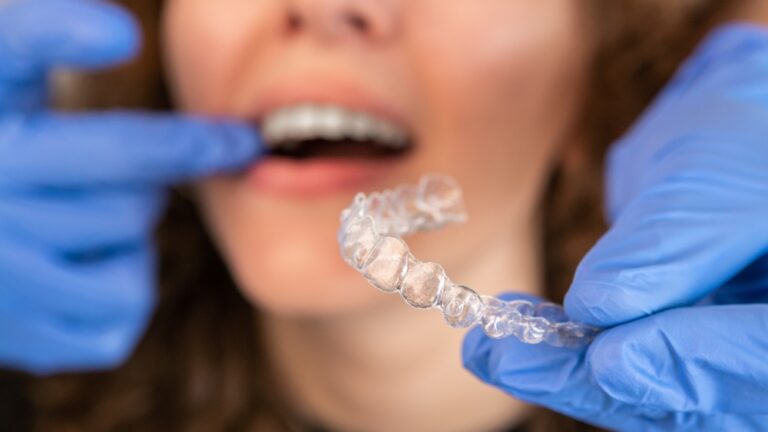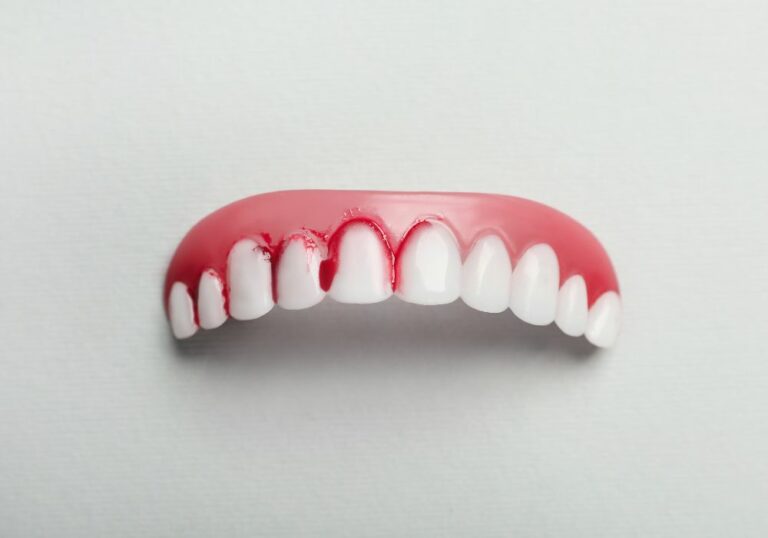A pre-surgical dental examination is a common practice that many people undergo before surgery. But why do doctors and dentists check your teeth before surgery? The answer lies in understanding the role of teeth in overall health and the connection between oral health and surgery.
Research has shown that poor dental health can lead to a wide range of health problems, including heart disease, stroke, and diabetes. Additionally, dental infections can cause bacteria to enter the bloodstream and settle into surgical areas, potentially causing complications during and after surgery. As a result, dentists and doctors work together to ensure that patients undergo a thorough dental examination before surgery to rule out any potential dental issues.
Key Takeaways
- A pre-surgical dental examination is a common practice that helps to rule out potential dental issues before surgery.
- Poor dental health can lead to a wide range of health problems, including heart disease, stroke, and diabetes.
- Dental infections can cause bacteria to enter the bloodstream and settle into surgical areas, potentially causing complications during and after surgery.
Understanding the Role of Teeth in Overall Health
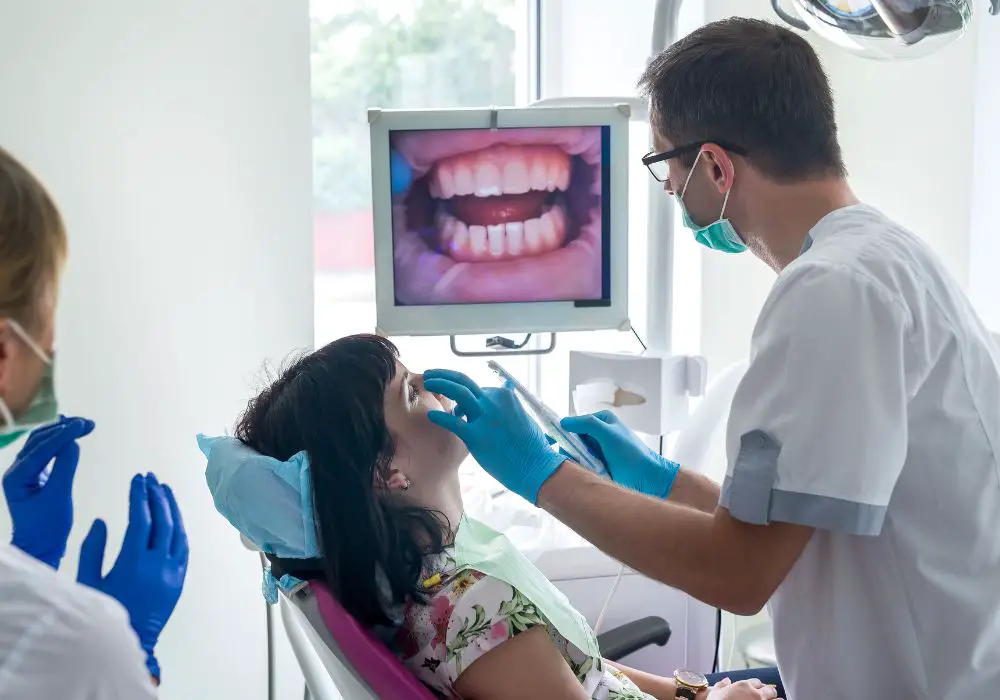
Your teeth play a crucial role in your overall health. Good oral hygiene is essential for maintaining healthy teeth and gums, which can help prevent a range of health problems.
Poor oral hygiene can lead to dental cavities, gum disease, and other dental problems. These issues can cause pain, discomfort, and even tooth loss if left untreated. Additionally, dental problems have been linked to a range of other health conditions, including heart disease, pneumonia, and endocarditis.
Endocarditis is a serious infection of the inner lining of your heart chambers or valves. It can occur when bacteria or other germs from your mouth spread through your bloodstream and attach to certain areas in your heart. This is why it is important to maintain good oral hygiene and have regular dental check-ups.
Your teeth also play a critical role in digestion. They cut and crush foods, making them easier to swallow and digest. Without healthy teeth, you may have difficulty eating and digesting certain foods, which can lead to malnutrition and other health problems.
In conclusion, your teeth are essential for your overall health and wellbeing. Maintaining good oral hygiene and having regular dental check-ups can help prevent dental problems and other health issues.
The Connection Between Oral Health and Surgery
Oral health is an essential part of overall health, and it can have a significant impact on surgical outcomes. Before undergoing any surgery, including heart surgery, it is essential to have a dental checkup to ensure that there are no underlying dental issues that could cause complications during or after the procedure.
Dental infections, gum disease, and other oral health problems can lead to bacteria entering the bloodstream, which can then settle into surgical areas and cause infections. This is why it is crucial to have a dental exam before surgery to rule out any dental abscesses, infections, or gum disease.
According to the Mayo Clinic, endocarditis is an infection of the inner lining of the heart chambers or valves that can occur when bacteria or other germs from another part of the body, such as the mouth, spread through the bloodstream and attach to certain areas in the heart. This highlights the importance of maintaining good oral health and having a dental checkup before surgery.
In addition to preventing infections, good oral health can also help speed up the healing process after surgery. Poor oral health can delay the healing process and increase the risk of complications. Therefore, it is essential to practice good oral hygiene, such as brushing twice a day, flossing daily, and visiting the dentist regularly.
In summary, there is a clear connection between oral health and surgery, and it is crucial to have a dental checkup before any surgical procedure to ensure that there are no underlying dental issues that could cause complications. Maintaining good oral health can also help speed up the healing process and reduce the risk of complications after surgery.
Pre-Surgical Dental Examination
Before undergoing surgery, it is common for patients to undergo a pre-surgical dental examination. This examination is necessary to ensure that there are no dental problems that could lead to complications during or after surgery.
During the examination, the dentist will check for any signs of infection, decay, or gum disease. They will also look for any loose or broken teeth, as well as any signs of oral cancer. If any problems are found, the dentist will recommend treatment before the surgery.
It is important to note that dental problems can lead to serious complications during surgery. For example, bacteria from an infected tooth can enter the bloodstream and cause an infection in the surgical site. This can lead to delayed healing, increased pain, and even the need for additional surgeries.
In addition to the dental examination, patients may also be asked to undergo x-rays or other diagnostic tests to assess the health of their teeth and gums. These tests can help identify any hidden problems that may not be visible during a routine dental exam.
Overall, a pre-surgical dental examination is an important step in ensuring a safe and successful surgery. Patients should be sure to schedule this exam well in advance of their surgery date to allow time for any necessary treatment.
What Dentists Look for During the Exam
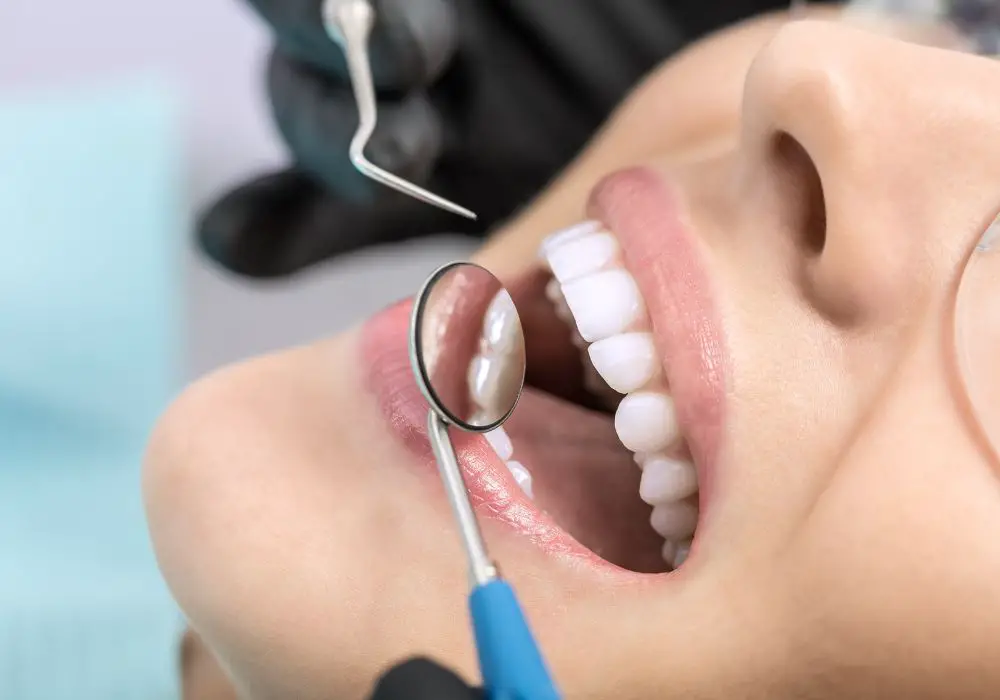
Before surgery, dentists perform an oral exam to ensure that there are no dental issues that could cause complications during the procedure. During the exam, dentists look for several things, including:
- Tooth decay: Dentists will check for any signs of tooth decay or cavities that may need to be treated before surgery. If left untreated, tooth decay can lead to infections or other complications during the procedure.
- Gum disease: Dentists will also check for signs of gum disease, such as redness, swelling, or bleeding. Gum disease can cause infections and other complications, so it’s important to address any issues before surgery.
- Oral cancer: Dentists may also perform an oral cancer screening to check for any signs of abnormal cells in the mouth. Catching oral cancer early can improve the chances of successful treatment.
- Missing or damaged teeth: Missing or damaged teeth can also cause complications during surgery. Dentists will check for any missing or broken teeth and may recommend treatment, such as a dental implant or bridge, to replace them before the procedure.
Overall, the goal of the oral exam is to ensure that there are no dental issues that could cause complications during surgery. By addressing any dental issues before the procedure, dentists can help ensure a successful outcome and a faster recovery time for patients.
Potential Dental Issues Before Surgery
Before undergoing surgery, it’s common practice for your healthcare provider to request a dental exam. This is because dental issues can cause complications during surgery. Here are some potential dental issues that may need to be addressed before surgery:
- Dental Infection: An infected tooth or gum can harbor bacteria that can travel through the bloodstream and cause infections in other parts of the body. This is especially problematic during surgery, as it can increase the risk of complications.
- Dental Abscess: A dental abscess is a pocket of pus that forms in the tooth or gum. If left untreated, it can lead to serious infections and complications, such as sepsis.
- Gum Disease: Gum disease, also known as periodontal disease, is a bacterial infection that affects the gums and bone that support the teeth. If left untreated, it can lead to tooth loss and other health issues, such as heart disease.
- Loose Teeth or Dentures: Loose teeth or dentures can pose a risk during surgery, as they can become dislodged and obstruct the airway.
- Oral Cancer: Oral cancer, which includes cancers of the mouth, throat, and tongue, can also cause complications during surgery. Your healthcare provider may want to rule out the presence of oral cancer before proceeding with surgery.
To avoid potential complications, it’s important to inform your healthcare provider of any dental issues you may have before undergoing surgery. Your healthcare provider may recommend a dental exam to rule out any potential issues and ensure that you are in good oral health before the procedure.
Addressing Dental Problems Pre-Surgery
Before undergoing surgery, it is common for patients to be required to have a dental exam. This is because dental problems can increase the risk of complications during and after surgery. In this section, we will discuss how dental problems can affect surgery and what can be done to address them before the procedure.
Dental problems such as tooth decay, gum disease, and abscesses can increase the risk of infection during surgery. This is because bacteria from the mouth can enter the bloodstream and travel to other parts of the body. In some cases, this can lead to serious complications such as heart infections or pneumonia.
To reduce the risk of complications, it is important to address any dental problems before surgery. This may involve treating tooth decay or gum disease, extracting infected teeth, or performing a deep cleaning to remove plaque and bacteria from the mouth.
If you have a dental problem, your dentist may recommend antibiotics to help prevent infection during and after surgery. It is important to follow your dentist’s instructions carefully and take all prescribed medications as directed.
In addition to treating dental problems, it is also important to maintain good oral hygiene before surgery. This includes brushing twice a day, flossing daily, and using an antiseptic mouthwash to kill bacteria in the mouth.
By addressing dental problems before surgery and maintaining good oral hygiene, you can reduce the risk of complications and improve your overall health. If you have any concerns about your dental health before surgery, be sure to talk to your dentist or surgeon.
The Role of Anesthesia in Dental Checks
Before administering anesthesia, a dental anesthesiologist checks the patient’s dental condition to identify any potential problems that may arise during the procedure. This assessment helps the anesthesiologist formulate a plan to mitigate dental injury risk and ensure that the patient has a safe and comfortable experience.
Dental anesthesia is a safe and effective means of managing pain during dental procedures and surgeries. It blocks painful sensations in specific areas of the patient’s mouth, making it possible for the dentist to perform the necessary procedures without causing discomfort to the patient.
There are different types of dental anesthesia available, including local anesthesia, general anesthesia, and sedation anesthesia. The type of anesthesia used depends on the patient’s needs, the procedure being performed, and the dentist’s recommendation.
In addition to checking the patient’s dental condition, the dental anesthesiologist also monitors the patient’s vital signs throughout the procedure to ensure that they are safe and comfortable. The anesthesiologist is trained to recognize and respond to any adverse reactions that may occur during the procedure, such as allergic reactions or breathing difficulties.
Overall, the role of anesthesia in dental checks is critical to ensuring that patients have a safe and comfortable experience during dental procedures. By working closely with the dentist and the patient, the dental anesthesiologist can help to identify and mitigate any potential risks, ensuring that the patient receives the best possible care.
The Impact of Dental Health on Surgical Recovery
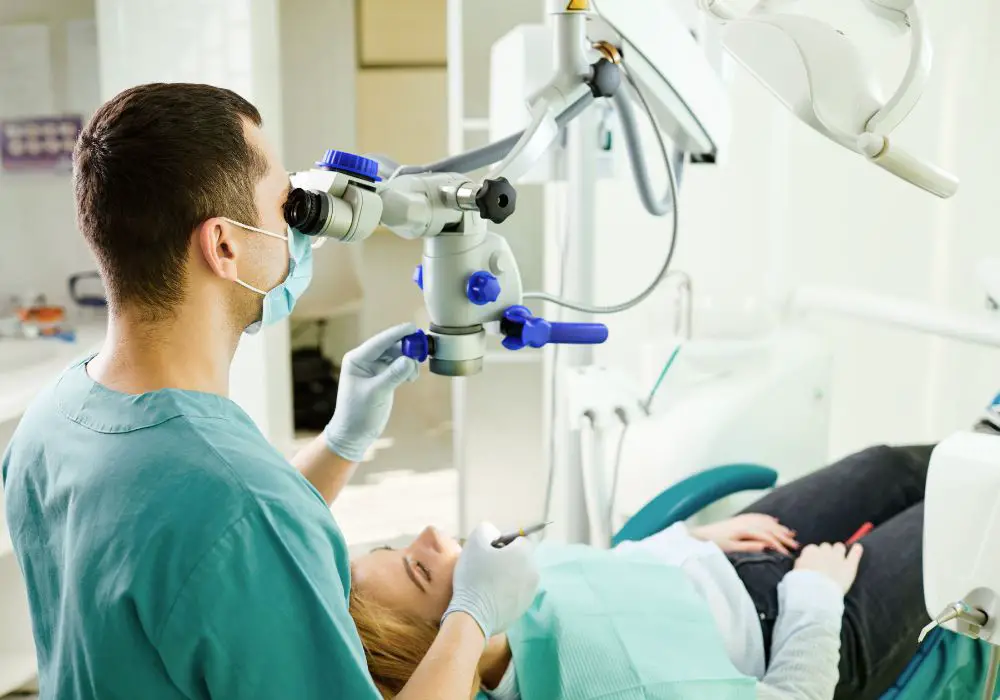
Maintaining good dental health is important for overall health and well-being. However, it can also have a significant impact on surgical recovery. Dental infections, abscesses, and gum disease can all increase the risk of complications during and after surgery.
According to the Mayo Clinic, a dental exam before surgery can help to rule out any dental issues that could lead to complications. Infections in the mouth can easily spread to other parts of the body, including the surgical site, which can delay healing and increase the risk of infection.
One study conducted by researchers at the Mayo Clinic found that removing diseased teeth before heart surgery as a preventive measure may actually increase the risk of complications. This highlights the importance of addressing dental issues before surgery and ensuring that any necessary treatments are completed well in advance of the procedure.
In addition to preventing complications, maintaining good dental health can also speed up the recovery process. After surgery, patients may experience discomfort or pain in the mouth, which can make it difficult to eat or drink. This can lead to dehydration and a weakened immune system, which can slow down the healing process. By ensuring good dental health before surgery, patients can help to minimize these risks and promote a faster recovery.
Overall, the impact of dental health on surgical recovery cannot be overstated. By taking care of your teeth and gums, you can help to ensure a smoother, safer, and faster recovery from surgery.
Frequently Asked Questions
What is the purpose of dental clearance before surgery?
Dental clearance before surgery helps to rule out any dental infections, abscesses, or gum disease that could lead to bacterial infections in the bloodstream. This is important because bacterial infections may lead to complications during and after surgery.
Why is it important to have a healthy mouth before surgery?
Having a healthy mouth before surgery is important because it reduces the risk of bacterial infections. Bacteria from dental infections can enter the bloodstream and cause complications during and after surgery.
Can dental problems affect surgery outcomes?
Yes, dental problems can affect surgery outcomes. Dental infections can cause complications during surgery, delay healing, and increase the risk of postoperative infections.
How does dental health affect overall health during surgery?
Dental health is an important factor in overall health during surgery. Poor dental health can increase the risk of infections, delay healing, and cause complications during and after surgery.
What are the risks of having dental work done before surgery?
The risks of having dental work done before surgery include bleeding, infection, and pain. It is important to discuss these risks with your dentist and surgeon before having any dental work done.
What are the guidelines for dental clearance before surgery?
The guidelines for dental clearance before surgery vary depending on the type of surgery and the patient’s overall health. However, in general, patients should have a dental exam and any necessary dental work done at least two weeks before surgery. It is important to discuss any dental concerns with your dentist and surgeon before surgery.





